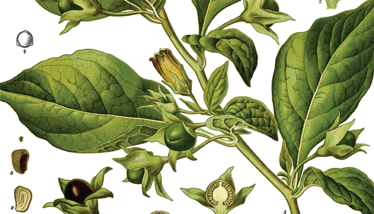MIA and Potent Plants
Can genetically engineering yeast be used to produce safe and scalable schizophrenia plant-inspired drugs?
Jamie Irvine | | 2 min read | News

Credit: Wikipedia
The use of herbal medicine can be traced to many ancient civilizations, with the earliest written records dating back approximately 5000 years. Even today, we turn to the power of plants – if not for direct therapeutic effect then for inspiration.
“Development of medicines from natural plant substances is widely used. However, since plants do not produce these substances to fight human diseases, there is often a need to modify them to make them more effective and safe,” said Michael Krogh Jensen, a senior researcher at DTU Biosustain and co-founder of the biotech company Biomia, who is exploring the potential of plant-inspired compounds for the treatment of schizophrenia (1).
Previous research indicated that plant monoterpene indole alkaloids (MIAs), such as alstonine and serpentine, possess potent antipsychotic properties, pointing to potential therapeutic use for mental disorders. However, scaling has been a challenge. But now Krogh Jensen and a team of international researchers have developed a scalable platform to perform de novo biosynthesis of serpentine and alstonine – using yeast (2)
“We have found a method to make yeast cells use enzymes and carry out the same chemical process that takes place in halogenation. Plants generally can’t naturally carry out halogenation. Therefore, our versatile biotechnological platform is a possible method for optimizing and developing plant-based alkaloids that may then be used to make medicines against, for example, schizophrenia.”
And there certainly is a need; current therapeutic options for schizophrenia effectively target delusions and hallucinations but fall short in fully addressing cognitive impairment. Moreover, these treatments can result in “negative side effects such as insomnia, weight gain and reduced immunity,” according to Krogh Jensen.
The team’s research into yeast-based manufacturing of 19 different plant-inspired but “new-to-nature” haloserpentine and haloalstonine analogs is ongoing, but Krogh Jensen hopes the engineered candidates will find their way into various clinical trials by 2026.
- “Yeast cells can produce drugs for treatment of psychotic disorders,” Denmark Technical University (2023). Available at: https://bit.ly/3N6FLyX
- SA Bradley et al., “Biosynthesis of natural and halogenated plant monoterpene indole alkaloids in yeast,” Nature Chemical Biology (2023). DOI: https://doi.org/10.1038/s41589-023-01430-2
Associate Editor, The Medicine Maker



















